10. The Disaster Artist
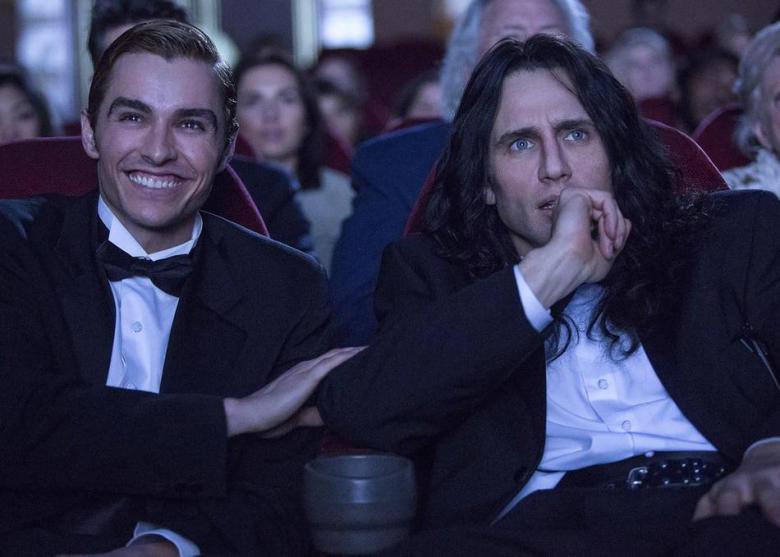
An endearing and diverting tale of friendship, creativity, and pursuing one’s dreams, The Disaster Artist isn’t just one of 2017’s funniest films, it’s also surprisingly one of the most poignant.
Directed by and starring James Franco, this is the tragicomical real life story of Tommy Wiseau (Franco), the delusional filmmaker behind “The Citizen Kane of Bad Movies,” the inept cult classic from 2003, The Room. Adapted from the best-seller by Wiseau’s BFF and The Room co-star Greg Sestero (brilliantly brought to life in the film by Dave Franco, James’ little brother), this tell-all tale does supply ample laughs, but it also gloriously lauds enduring friendship, artistic expression and ingenuity, and following your desire (even or especially when you have literally no clue what you’re doing!).
Die-hard fans of The Room of course will rejoice, but similarly to Tim Burton’s 1994 biopic classic Ed Wood, this is an anecdotal appreciation of a twisted dreamer whom you need not be familiar with to appreciate his tale. Offbeat, uncomfortable, insightful and slick, The Disaster Artist is a strange celebration that sweeps you up and nimbly wins you over.
9. Call Me By Your Name
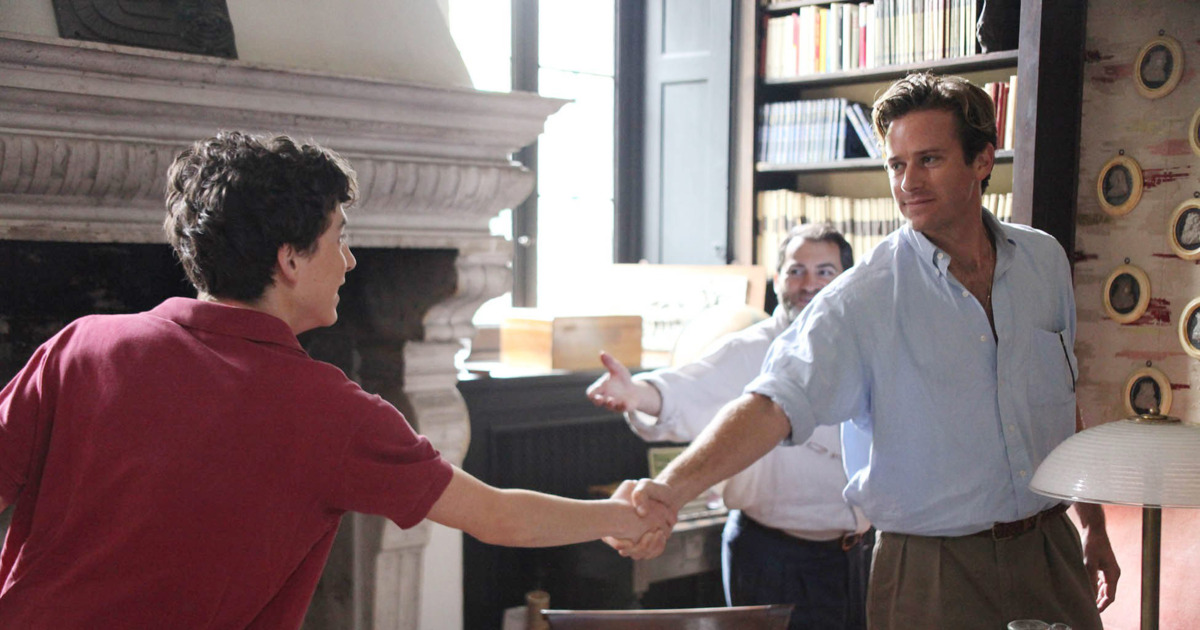
Luca Guadagnino’s Call Me By Your Name favors finesse, sparkle, and languid idle in this James Ivory scripted story (based off of André Aciman’s 2007 novel) of love, intimacy and longing between two men, and that said, never once does it feel any less than real and heart-rending.
An admirer of his fellow countryman Bernardo Bertolucci, it’s been suggested that Call Me By Your Name is Guadagnino’s Stealing Beauty, and that does ring rather true, it’s also the final entry in his thematic Desire trilogy, after I Am Love (2009) and A Bigger Splash (2015). Comparisons have also been drawn to last year’s elegiac gay masterpiece Moonlight, and that film’s director Barry Jenkins has said that “[Call Me Be Your Name] is a supremely delicate and humane work… An intellectually rigorous examination that never loses warmth.”
And warm it is as we get to know 17-year-old Elio Perlman (Timothée Chalamet), a Jewish American boy spending the endless-seeming summer days of 1983 with his family at their 17th-century villa in Lombardy, Italy. Enter the dreamy American Jewish grad student Oliver (Armie Hammer), who’s working as an intern for Elio’s archaeology professor father (Michael Stuhlbarg).
This is top tier art house cinema to be sure, and as fleeting as Elio and Oliver’s sun-soaked and starlit tryst may be, Call Me By Your Name will have you feeling every bit as cherished as they do. Superb.
8. Lady Bird
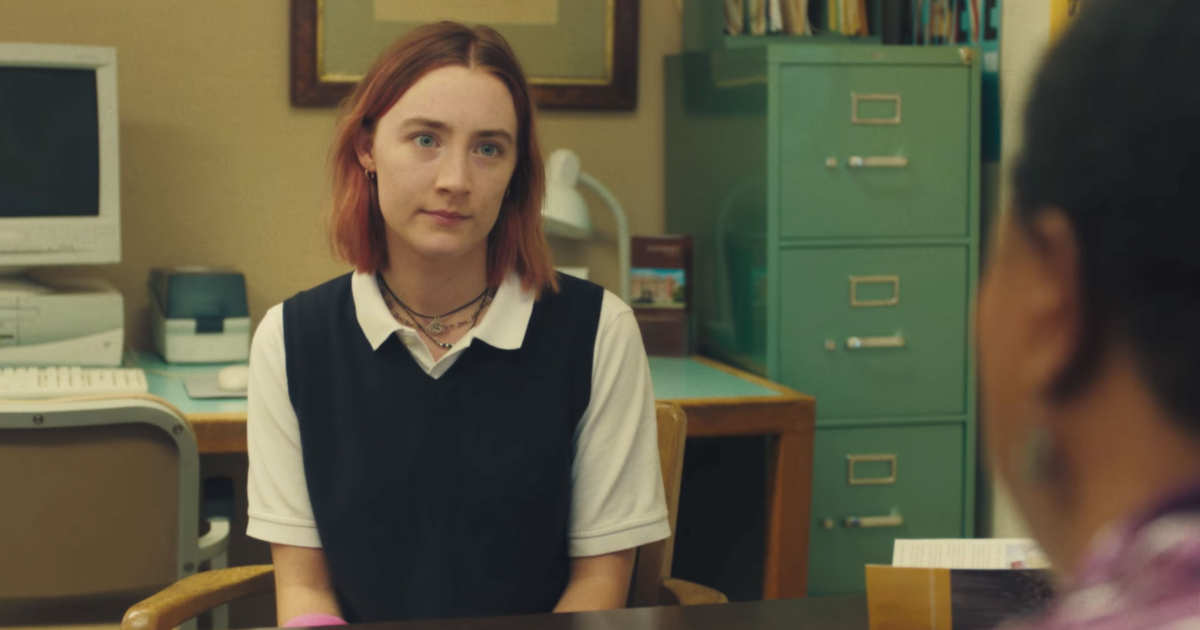
Delving into equal parts poignancy and playfulness with surety and poise, Greta Gerwig makes an impressive and unhesitating directorial debut with the charismatic coming-of-age comedy Lady Bird.
Set in Sacramento, California in 2002, in the umbrage of post-9/11 America and the uneasy economy that came with it, Lady Bird limns the often bitter bonds between break loose seventeen-year-old Christine “Lady Bird” McPherson (Saoirse Ronan) and her strenuous mother, Marion (Laurie Metcalf).
“Aren’t they the same thing; love and attention?” asks the mother superior (Lois Smith) of Lady Bird’s Catholic high school to her in her office after a refractory little prank. The Sister, like many of the adults in Lady Bird’s life, recognizes her sweet nature and tenacity, and treats her with the intelligence and respect she deserves. There’s an aching honesty at play, and to see the agitation and confusion of adolescence played out with surprisingly strong resonance and repartee is a delicious thrill.
Nimble, nuanced, and rewardingly reflective, Lady Bird alights with artistry and ease.
7. Raw
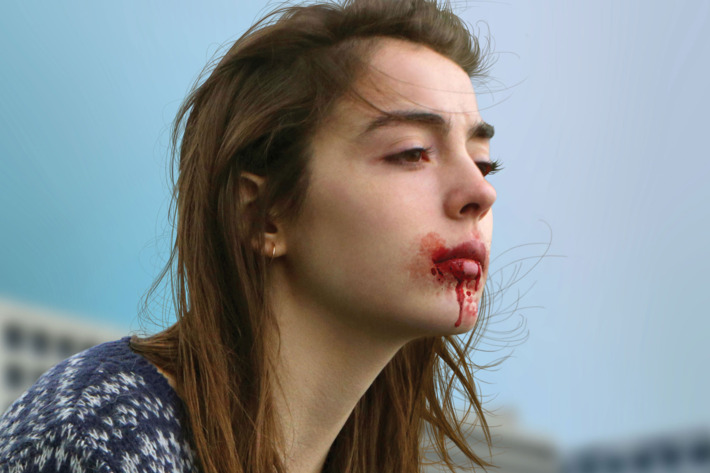
Rolling Stone’s Peter Travers has suggested that writer-director Julia Ducournau’s first feature film Raw is “a contender for best horror movie of the decade” and who are we to disagree? Raw is a near-flawless, wholly competent, and never less than riveting genre detour of taboo-smashing originality. Body-horror hasn’t been this elegantly engaging and upsetting since David Cronenberg’s heyday, and Ducourno’s symbolically lavish, freakishly erotic, female-perspective is a warm embrace.
Justine (Garance Marillier, superb) is a strict vegetarian who has joined her older sister Alexia (Ella Rumpf) at a prestigious veterinary school. The elegant and somewhat unconventional presentation of the campus setting combined female leads, odd inexplicable occurrence and Brit composer Jim Williams’ at times overwhelming score, suggests a pedigree similar to the Dario Argento classic Suspiria (1977), which to my mind merely suggests that Ducournau is motivated by the macabre best.
Desperate to fit in amongst her peers and to appease her parents, Justine finds herself betraying her beliefs to participate in a hazing ritual involving eating raw meat, but the unforeseen consequences as Justine’s true, cannibalistic self emerges is some off-the-rails nightmare material.
Immersive, unrelenting, and impossible to predict, Raw is, despite its thunderous rain of blood, a seductively expressive and involving story of adolescence and anxiety proving that the horror/coming-of-age combo can be both carnal and compelling. Unforgettable.
6. Get Out
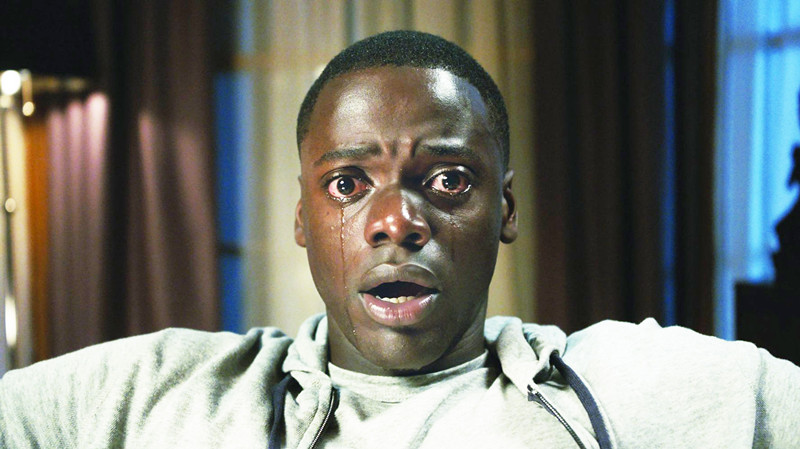
Intelligently satiric, incredibly horrific, profoundly funny, and deeply resonant for anyone who thoughtfully ponders the issue of race in North America, Jordan Peele makes an outstanding directorial debut with Get Out (which he also wrote).
Riffing on Stanley Kramer’s Guess Who’s Coming to Dinner (1967), Chris Washington (Daniel Kaluuya), with some well-placed reservations, reluctantly but good-naturedly accompanies his new girlfriend Rose Armitage (Allison Williams) for a weekend in the country with her upscale folks (Catherine Keener and Bradley Whitford). Knowing that the only other African Americans within screaming distance will be the Armitage’s servants, it’s no wonder that Chris is nervous about how Rose’s family will receive him, even knowing that they are liberal-minded, educated, and easy-going.
“The thing Get Out does so well – and the thing that will rankle with some viewers – is to show how, however unintentionally, these same people can make life so hard and uncomfortable for black people,” wrote The Guardian’s Lanre Bakare. “It exposes a liberal ignorance and hubris that has been allowed to fester. It’s an attitude, an arrogance which in the film leads to a horrific final solution, but in reality, leads to a complacency that is just as dangerous.”
Get Out is great as an uncomfortable comedy, but it excels at social commentary and reconstituted horror movie hyperbole. Funny, frightening, and perpetually thought-provoking, Peele expertly provides a slow-build with some great twists, palatable payoffs, and plenty of wit. This is an excitedly ambitious film from Peele, and a poignant one, and we can’t wait to see what he does next. If you haven’t seen it already (and seriously, if you haven’t wtf?!), get out and see Get Out.
5. Faces Places
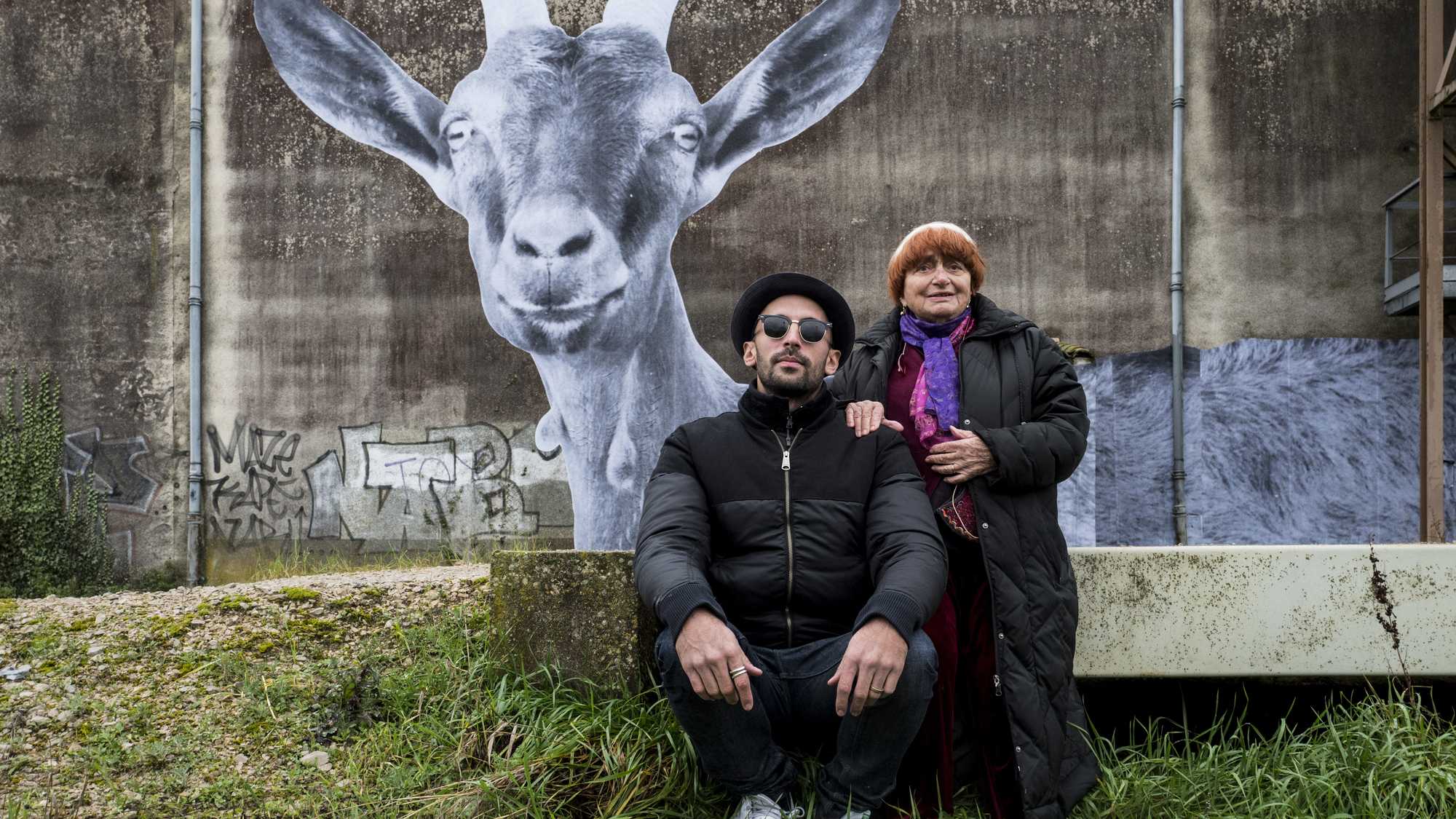
The illustrious and legendary French film director Agnès Varda (Cléo From 5 to 7 [1961], Vagabond [1984], The Gleaners and I [2000]), now nearly 90, hits the streets and rural routes of France with French photographer and artist JR on a quest for people and their villages––the faces and places of the film’s title.
Perhaps surprisingly these two very different artists get on very well together, and as this delectable documentary briskly moves along, they make for very quick-witted, well-informed and wonderfully reflective hosts. As they come across and encounter a wide variety of villagers who all agree to be made into monumental portraits––JR’s current primary practice––Faces Places soon celebrates the cathartic, curative, and transformative power of art.
One of the most gratifying and relishable feel good films of this or any year, Faces Places is a fete of wide-ranging relations, human connections, joyful improvisations and exuberant, bounding energy.
Winner of the Most Popular International Documentary award at the 2017 Vancouver International Film Festival, where I first saw it and gave it a thunderous standing ovation while brushing aside delightful tears, Faces Places is the type of profoundly affecting film you just don’t want to end but will happily revisit again and again.
4. Good Time
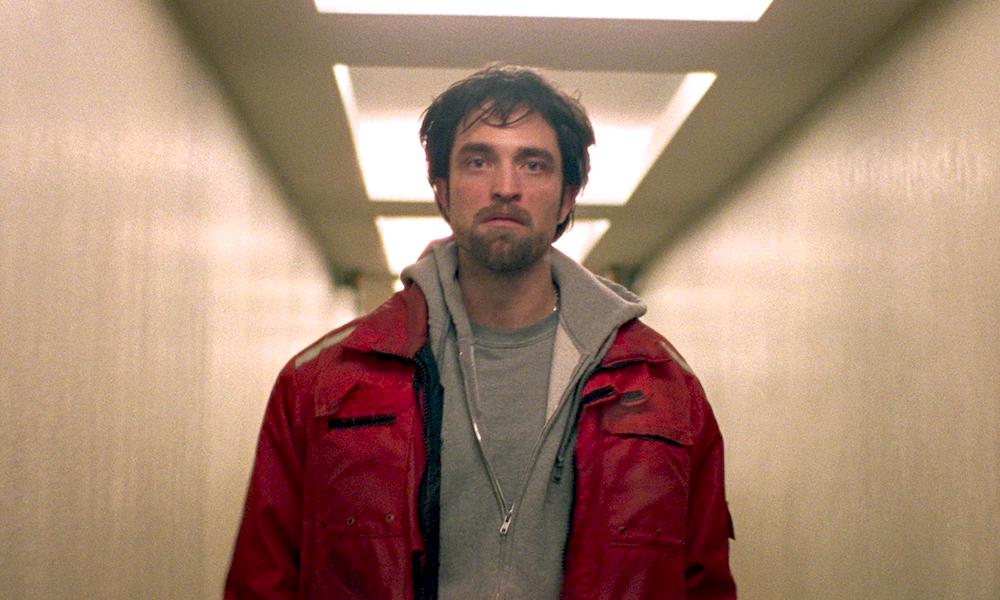
Constantine “Connie” Nikas (Robert Pattinson) and his developmentally disabled younger brother, Nick (Benny Safdie) are running-on-ice at breakneck speed, a frenzied pair of expeditious society’s free agents. Good Times is a lit fuse of confused white privilege in a subterrane underworld of everything-gone-from-bad-to-worse vivacity. A knotty New York-set crime story, this is the latest bravura showpiece in the sticky, sophisticated, socially impaired cinema of brothers Josh and Benny Safdie (Daddy Longlegs [2009]).
The maladjusted misadventures of Connie and Nick over one wild night, related at a relentless clip to the heady and propulsive Tangerine Dream-inspired electronic score by Oneohtrix Point Never, amounts to something akin to a convergence of Martin Scorsese’s After Hours (1985) and Mike Leigh’s Naked (1993), yet it remains it’s own altered beast.
A film that feels like it is in freefall, Ben Safdie (director, co-star) and Josh Safdie (director, co-writer, co-editor) jangle documentary-style realism together with instinctive genre film expressionism.
Good Time is an expansive (though still indebted to John Cassavetes) anomaly. Working once more with their preferred cinematographer Sean Price Williams, the film is ingeniously lit in black light, strobes, mercury vapors, fluorescent greens, and whatever available light allows.
Largely shot in close-ups, handheld, and with genuine grit, the glossy realism is terribly hard to resist. There’s so much on-screen charisma and calamity that it’s at times perhaps all too much. Like an amphetamine-infused cocktail served in a postmodern Joycean Mason jar daring you to drink, Good Time will leave you delirious in the best possible way.
3. Blade Runner 2049
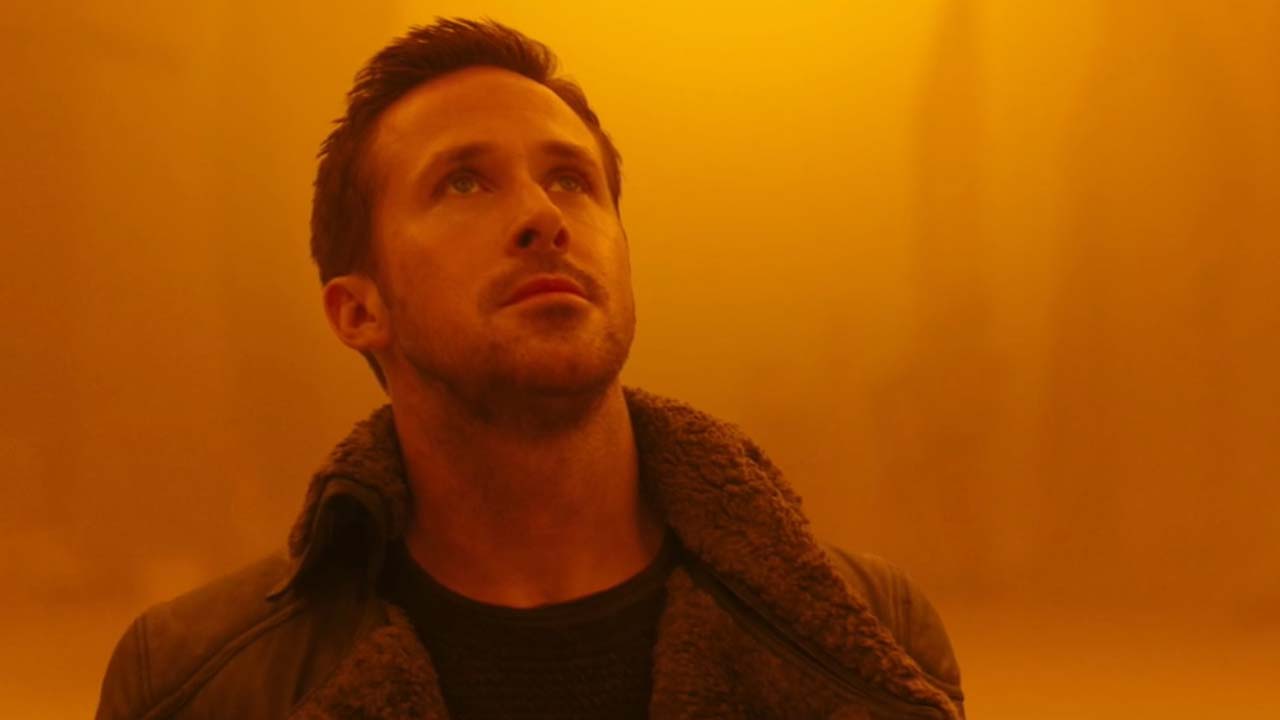
Working closely with screenwriters Hampton Fancher (who co-wrote Ridley Scott’s original Blade Runner back in 1982) and Michael Green (2017’s Logan, already on this very list), and his sensational cinematographer Roger Deakins, visionary Canadian film director Denis Villeneuve did the near impossible task of following up Scott’s Blade Runner with a sequel that retains much of the tactile splendor and future noir poetry of the original while manufacturing an objet d’art that is perhaps even more emotionally engaging and narratively a more complete experience.
Unspooling some thirty years after the first film, Ryan Gosling is K, a replicant who hunts rogue replicants and, like Rick Deckard (Harrison Ford, excellent in his best role in decades) before him, retires his quarry using deadly means. When K discovers evidence suggesting that a replicant has reproduced and had a child, he is charged with murdering the child to prevent a replicant uprising.
While 2049 certainly lacks the iconic villains of the original (Jared Leto’s Niander Wallace and Sylvia Hoeks’ Luv are intriguing characters but lack the depth, dynamism, and grandeur of Rutger Hauer’s Roy Batty and Daryl Hannah’s Pris), it still offers up an emotive, stirring, and stunning spectacle.
The dystopian future presented onscreen is equal parts gorgeous and ghoulish, and many of Philip K. Dick’s big questions and recurrent verses are elegantly displayed (the AI doomed romance between K and Ana de Armas’ Joi is truly heartbreaking, and the Christian symbology and water motifs, to choose but one example, is gracefully realized and very satisfying for all us Dickheads out there).
A sublimely articulated mindbender, seductively crafted, steeped in mystery, and one that teases the audience with numerous ambiguities, and needling puzzles, Blade Runner 2049 is one of speculative fiction’s crown jewels. This is a film that, like its predecessor, will be discussed, dissected, revisited and extolled for decades to come.
2. The Florida Project
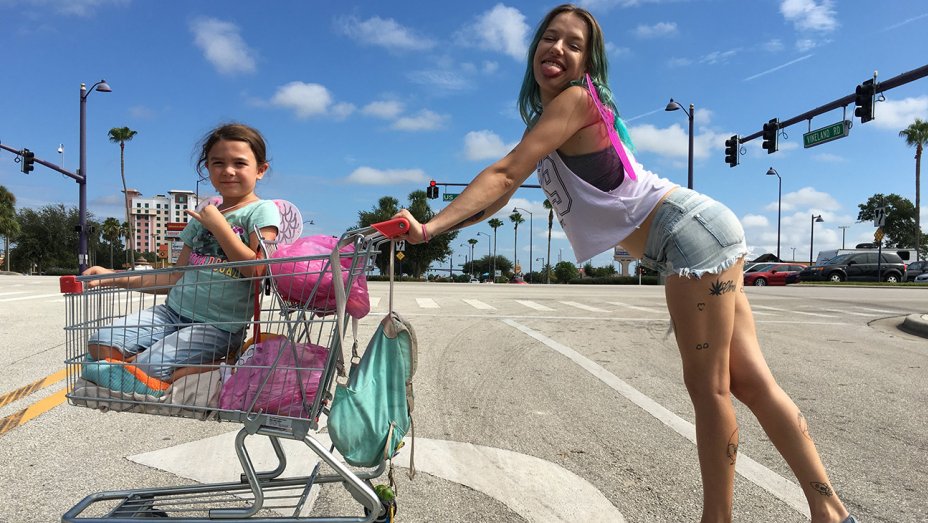
Sean Baker’s latest, The Florida Project, is a vivid tour-de-force film, which brings with it an illustrious new joie de vivre to the essentia of youth.
Set in a superannuated, and pastel colored corner of Orlando interstate, which Baker and cinematographer Alexis Zabe artfully reconstruct into a vibrant and gossamer-like playground that is guaranteed to warm the most jaded moviegoer’s heart.
Presenting a poignant portrait of childhood as lovingly glimpsed through the eyes of Moonee (Brooklynn Prince, stunning), a smart-alecky six-year-old being raised by her unruly young mother, Halley (Bria Vinai, also brilliant) during summer vacation. The mother-daughter duo live week to week at a seedy roadside hotel, “The Magic Castle,” which is managed by the compassionate but crusty patriarch, Bobby (Willem Dafoe).
Baker, somewhat in the tradition of François Truffaut’s oppressive childhood epic The 400 Blows (1959), presents an alternately endearing, upsetting, and occasionally romantically sentimental vision of tender age exploration and wonder on the serrated edge of adult misery and misunderstanding.
Moonee, with her ragtag and bobtail buddies find humor and hoopla amidst abandoned homes, derelict fields, ice cream parlor parking lots, and laundromats, and while the grownup world of booze-fuelled fist fights, and fornication is never far off, it’s also a star-distance away from the play and pleasures of a spirited childhood’s point of view.
Dancing amidst squalor, The Florida Project is an utter joy, a celebration of aspiration and spectacle that will long be remembered as one of 2017’s finest and most stunning films. Here, in this heartfelt sphere of empathic understanding and picaresque perception we see a childhood, a motherhood, and an America that’s both exhilarative and deeply profound.
1. The Shape of Water
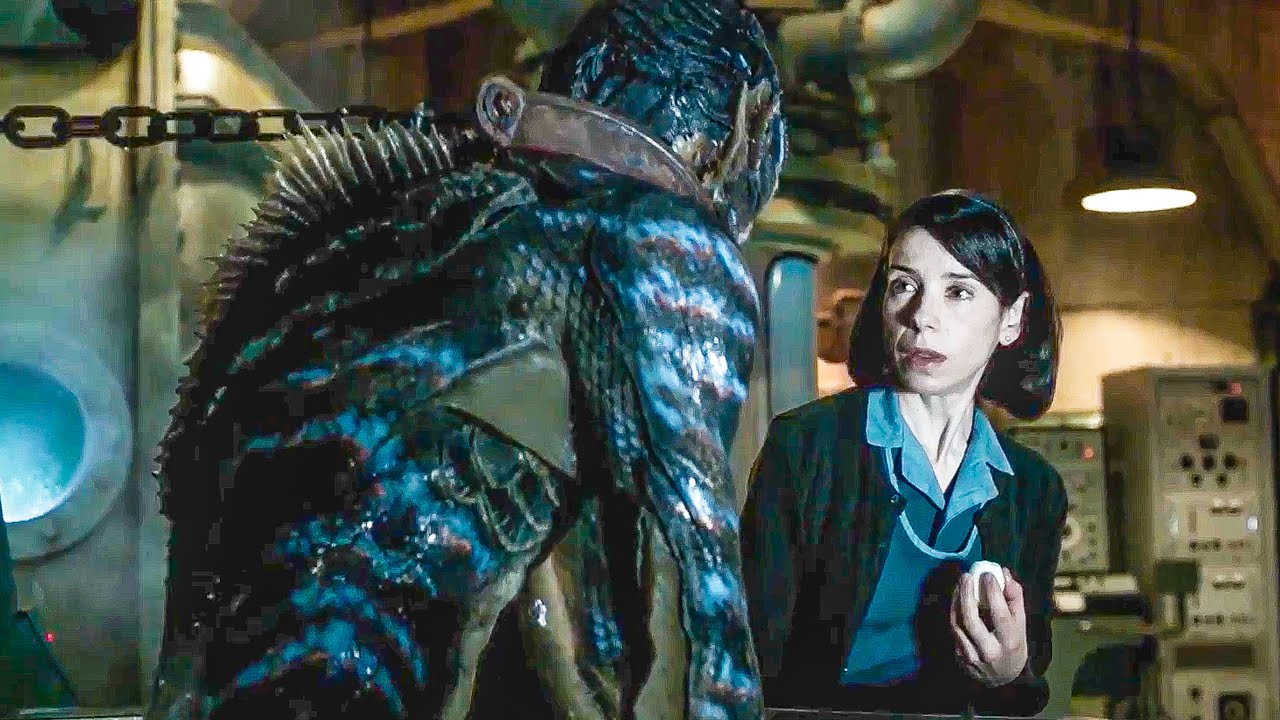
“Holy shit,” raved filmmaker Robert Rodriguez in a recent Twitter rant, “The Shape of Water is bold, breathless, heartfelt, visionary filmmaking from first frame to last!” Similar sentiments were enthused via social media from Logan director James Mangold who enthused “Wow! [Guillermo del Toro] thank you for your astounding & daring Shape of Water. You made such a devastating joyous personal moving humane fanciful honest beautifully crafted complex intimate imaginative romantic spectacle [sic]. My hat is off.”
Yes, the newest film from marvellous Mexican filmmaker Guillermo del Toro (The Devil’s Backbone [2001], Pan’s Labyrinth [2006]) is also his greatest achievement to date and 2017’s finest film, the fantastical pièce de résistance The Shape of Water.
Arriving in cinemas when it does, at a time of growing intolerance, much of del Toro’s film feels like it is very much a movie of it’s moment and time, and maybe this is largely because we need a movie that is this wonderfully romantic and this unusually lustful like we need an inoculation against the toxic news-cycle of the day and the easily upsetting parameters therein.
The Shape of Water, while set in 1962 Baltimore still strikes out as a romantic modern fairy tale (The Purple Rose of Cairo meets La Belle et la Bête meets The Creature from the Black Lagoon) that wisely knits the never-ceasing discrimination and disrespect minority groups face all across North America.
Buoyed with dignity, grace, and grievous heartbreak from the astounding Sally Hawkins (give this woman every acting award and distinction under the sun, please!), this movie will have you believe without batting a lash that a mute woman, Elisa Esposito (Hawkins) and a hard-boiled egg-devouring piscine amphibious humanoid (Doug Jones) from the uncharted depths of the Amazon can fall in love (and that you’ll root for them every unsteady step of the way).
With a perfect woozy score from Alexandre Desplat, expert lensing from cinematographer Dan Laustsen, dazzling production design from Paul Austerberry, and sensational special makeup effects by Jeff Derushie (and others), this empathetic, awe-inspiring ode to Old Hollywood and the heartstrings is del Toro’s generous gift to us all.
The Shape of Water is every reason why I love the movies and probably why many of you do, too. Dazzling.
Honorable Mention:
Beach Rats (directed by Eliza Hittman), The Big Sick (directed by Michael Showalter), Blade of the Immortal (directed by Takashi Miike), Bodied (directed by Joseph Kahn), Brawl in Cell Block 99 (directed by S. Craig Zahler), Coco (directed by Lee Unkrich and Adrian Molina), Colossal (directed by Nacho Vigalondo), The Divine Order (directed by Petra Volpe), Dunkirk (directed by Christopher Nolan), Ex Libris: the New York Public Library (directed by Frederick Wiseman), Girls Trip (directed by Malcolm D. Lee), Jane (directed by Brett Morgan), In the Fade (directed by Fatih Akin), John Wick: Chapter 2 (directed by Chad Stahelski), Kedi (directed by Ceyda Torun), Logan (directed by James Mangold), Logan Lucky (directed by Steven Soderbergh), Loving Vincent (directed by Dorota Kobiela and Hugh Welchman), Mudbound (directed by Dee Rees), Never Steady, Never Still (directed by Kathleen Hepburn), The Ornithologist (directed by João Pedro Rodrigues), The Other Side of Hope (directed by Aki Kaurismäki), Phantom Thread (directed by Paul Thomas Anderson), The Rider (directed by Chloé Zhao), The Square (directed by Ruben Östlund), The Transfiguration (directed by Michael O’Shea), Wind River (directed by Taylor Sheridan), Wonderstruck (directed by Todd Haynes).
Author Bio: Shane Scott-Travis is a film critic, screenwriter, comic book author/illustrator and cineaste. Currently residing in Vancouver, Canada, Shane can often be found at the cinema, the dog park, or off in a corner someplace, paraphrasing Groucho Marx. Follow Shane on Twitter @ShaneScottravis.